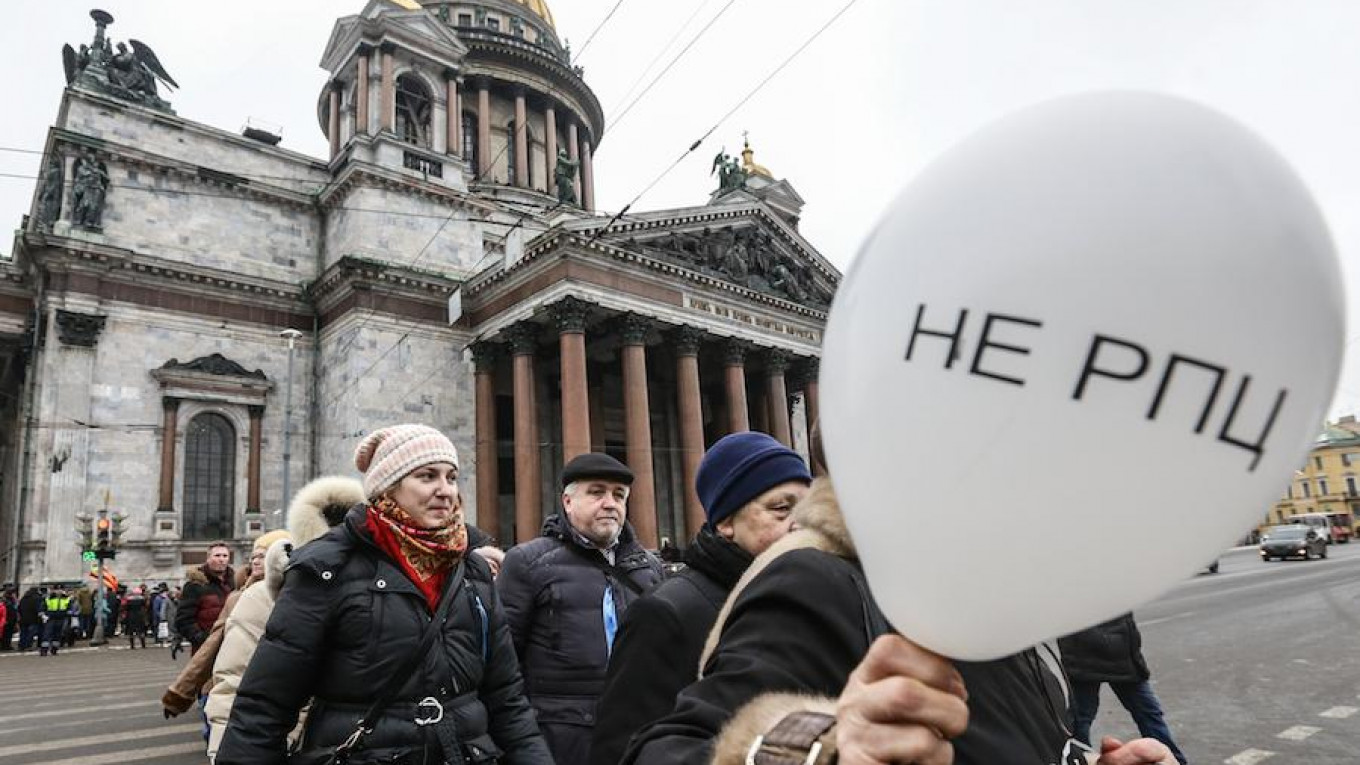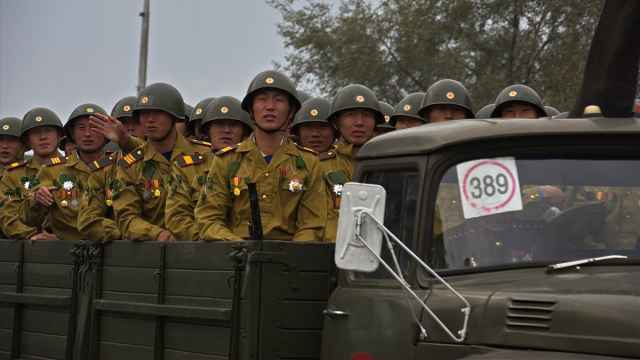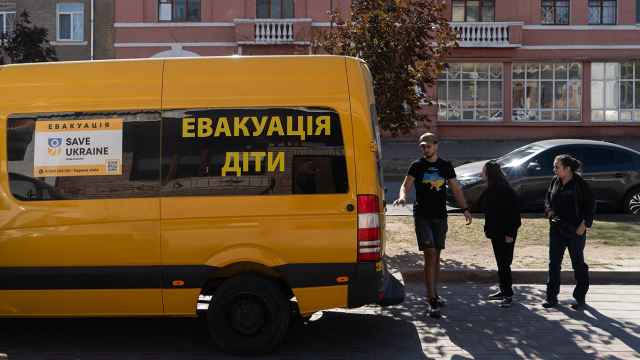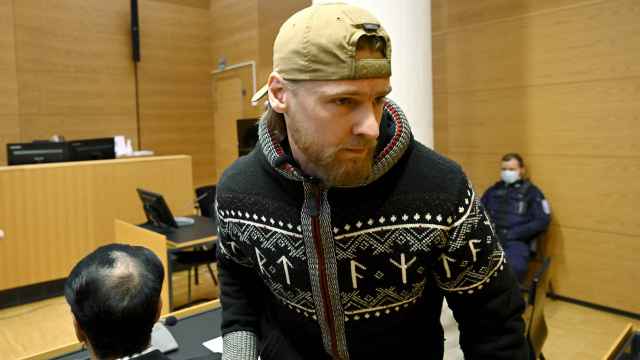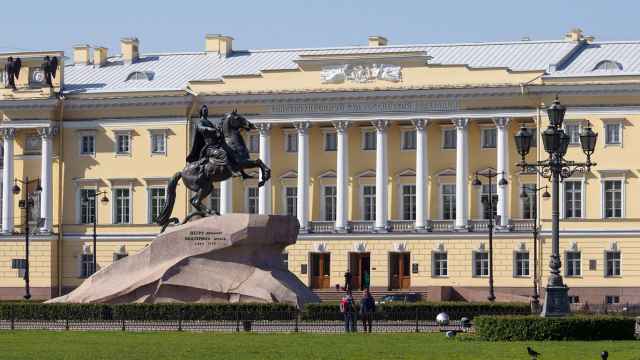Opponents of a controversial decision to gift St. Petersburg's most iconic building to the Russian Orthodox Church clashed with supporters on Sunday.
The conflict over St. Isaac's Cathedral, currently a state museum that also permits religious ceremonies, has divided Russia's second city. The saga began Jan. 10, when governor Georgy Poltavchenko, known for his pro-religious outlook, announced the building would be gifted to the Church.
Opponents of the move say that access to the building will be restricted if it falls under the control of the church. Russia's conservationists and museum community have also criticized the decision, saying the Orthodox Church will be unable to properly maintain the building.
But Orthodox activists say the Cathedral is a holy place that should be under the jurisdiction of the Church. They claim that religious buildings snatched from the Church after the Bolshevik Revolution should be returned to the Patriarchy.
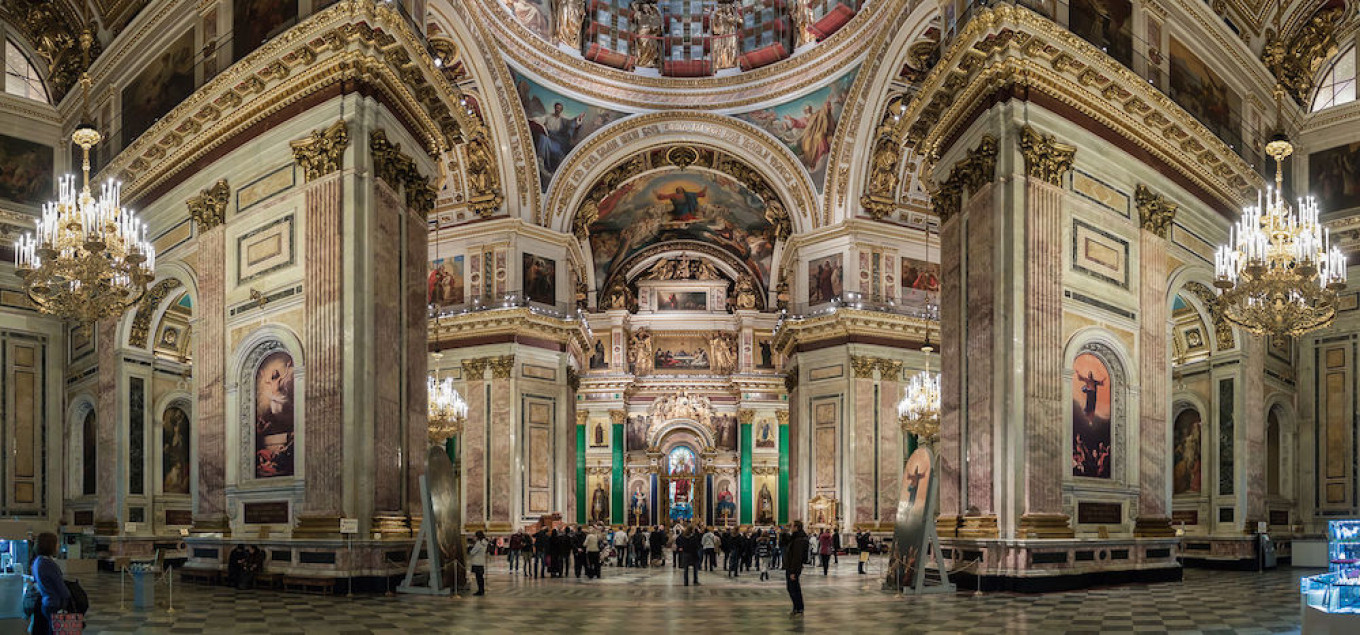
In fact, St. Isaac's was never fully under the authority of the Church. Under the Tsars, the Church Synod repeatedly asked for the building to be handed over to them from the authority of the Interior Ministry – but the government repeatedly refused.
The conflict escalated last week, when the rectors of St. Petersburg's universities signed a letter urging authorities to fast-forward the transfer of the church. In a letter to the governor, they wrote that the building should be given to the Church before the Russian Orthodox Easter which falls on April 16 this year. But later, two of the rectors whose names appeared on the letter said they had never seen or signed such an appeal.
Petersburgers have been staging protests outside St. Isaac's every weekend since the governor's announcement, demanding a referendum on the fate of the building. An online petition against the move has been signed 210,000 times.
But the largest gathering took place on Sunday, when hundreds formed a ring around the Cathedral.
Demonstrators held posters saying “A Museum For All” while holding hands around the building.
One woman held a banner that read: “St. Isaac's is the pride of the country and the world, it asks for protection from [Patriarch] Kirill's business.”
Approximately one thousand demonstrators took part in the protest.
Not far from the protest, supporters staged a counter-protest. One woman held a banner reading: "People despise the American lapdogs! Stop Maidan!"
Orthodox activists also staged a religious procession around the building in support of the decision. They were led by St. Petersburg's ultra-conservative deputy Vitaly Milonov. Milonov acquired international fame in 2009 for being a driving force behind Russia's anti-gay propaganda law.
Dressed in golden robes and holding religious icons, they marched around the Cathedral to show their support for the deal between the authorities and the head of the Orthodox Church Patriarch Kirill.
The procession eventually entered St. Isaac's and declared it to be the property of the Russian Orthodox Church.
Milonov then said that the ancestors of protest organizer Boris Vishnevskiy, a Jewish opposition deputy, “boiled Christians alive.”
Last month, the conflict around St. Isaac's resulted in a physical fight between deputies in the city's local council.
The Kremlin has said that the decision lies in the hands of St. Petersburg authorities. But the city's protesters say the decision comes from Moscow, and most likely by Putin himself.
A Message from The Moscow Times:
Dear readers,
We are facing unprecedented challenges. Russia's Prosecutor General's Office has designated The Moscow Times as an "undesirable" organization, criminalizing our work and putting our staff at risk of prosecution. This follows our earlier unjust labeling as a "foreign agent."
These actions are direct attempts to silence independent journalism in Russia. The authorities claim our work "discredits the decisions of the Russian leadership." We see things differently: we strive to provide accurate, unbiased reporting on Russia.
We, the journalists of The Moscow Times, refuse to be silenced. But to continue our work, we need your help.
Your support, no matter how small, makes a world of difference. If you can, please support us monthly starting from just $2. It's quick to set up, and every contribution makes a significant impact.
By supporting The Moscow Times, you're defending open, independent journalism in the face of repression. Thank you for standing with us.
Remind me later.


